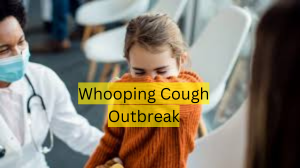Rising Concerns: Whooping Cough Outbreak in England
The UK Health Security Agency (UKHSA) has reported a troubling increase in whooping cough cases, with another infant death recently confirmed. This latest fatality brings the total number of infant deaths in England to 10 since the outbreak began. The surge in cases has been alarming, with the number of confirmed laboratory cases exceeding 10,000 this year.

Detailed Breakdown of the Outbreak
| Timeframe | Number of Deaths | Cases in Babies Under 3 Months | Total Confirmed Cases |
|---|---|---|---|
| November 2023 – June 2024 | 10 | Over 300 | 10,000+ |
Table of Contents
The outbreak, which began in England in November 2023, has seen its first death reported in December of that year, with the remaining deaths occurring between January and June 2024. The majority of cases have affected individuals aged 15 and older, but infants under three months remain the most vulnerable.
Understanding Whooping Cough
Whooping cough, or pertussis, is a highly contagious disease caused by the bacterium Bordetella pertussis. This bacterium targets the upper respiratory system, leading to severe coughing fits that can be debilitating and dangerous, particularly for infants.
Lazar Dukic Tragedy: CrossFit Athlete Drowns During 2024 CrossFit Games
Breaking Olympics: Everything You Need to Know About Breakdancing at the 2024 Games
Symptoms of Whooping Cough:
- Early Symptoms: Similar to a common cold, including a stuffy nose, low-grade fever, and mild cough.
- Progressive Symptoms: After a week or two, symptoms can develop into intense coughing fits that may last up to 10 weeks. These fits are characterized by a high-pitched “whoop” sound upon inhalation.
Who is Most at Risk?
- Infants: Babies under three months are at the highest risk, as they often do not exhibit the typical cough but may stop breathing during fits.
- Children and Teens: More likely to experience severe symptoms.
- Adults: May have milder symptoms but can still spread the disease.
Treatment and Vaccination
Treatment: If diagnosed early, whooping cough can be treated with antibiotics. However, if coughing persists beyond three weeks, antibiotics are generally not effective as the bacteria would have already cleared from the body.
Vaccination: Vaccination is the most effective way to prevent whooping cough. In the UK, vaccines are given to babies and pregnant women. Pregnant women are advised to receive the vaccine between 16 and 32 weeks of pregnancy to protect their infants before they can get vaccinated themselves. Unfortunately, vaccination uptake among pregnant women has decreased, with coverage dropping to 58.9% in March 2024 from a peak of 72.6% in 2017.
Global Context and Recommendations
Whooping cough is experiencing a resurgence globally, with reports of outbreaks and deaths in countries such as China, the Philippines, the Czech Republic, and the Netherlands. The cyclical nature of the disease and reduced immunity following the COVID-19 pandemic are contributing factors.
Dr. Mary Ramsay from the UKHSA emphasizes the importance of vaccination, stating, “Vaccination is the best defense against whooping cough and it is vital that pregnant women and young infants receive their vaccines at the right time.”
Conclusion
The whooping cough outbreak underscores the need for vigilance and timely vaccination. As cases continue to rise, especially among vulnerable populations like infants, ensuring high vaccination rates and early treatment remains crucial in controlling the spread of this potentially severe disease.
Discover more from
Subscribe to get the latest posts sent to your email.




